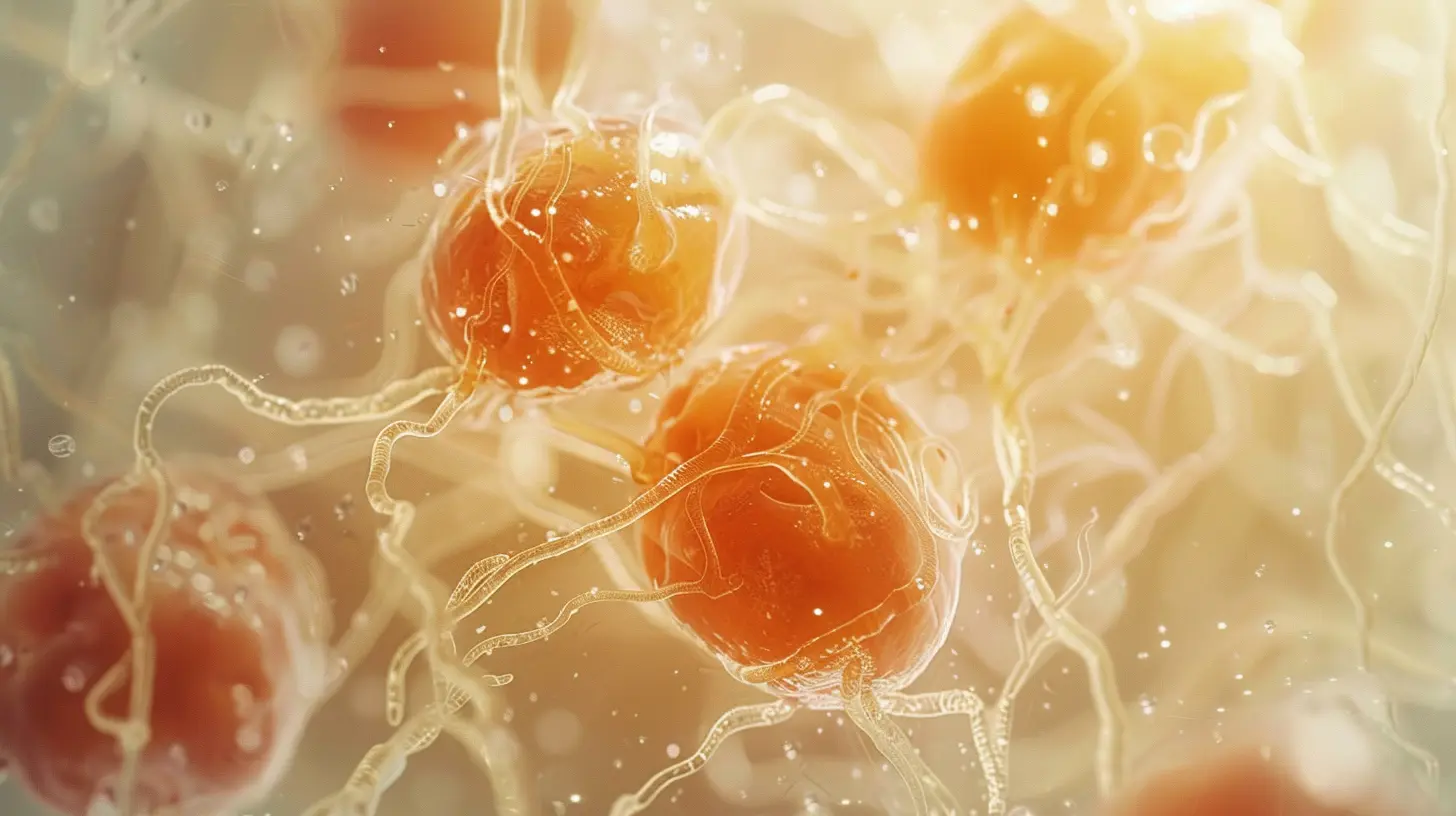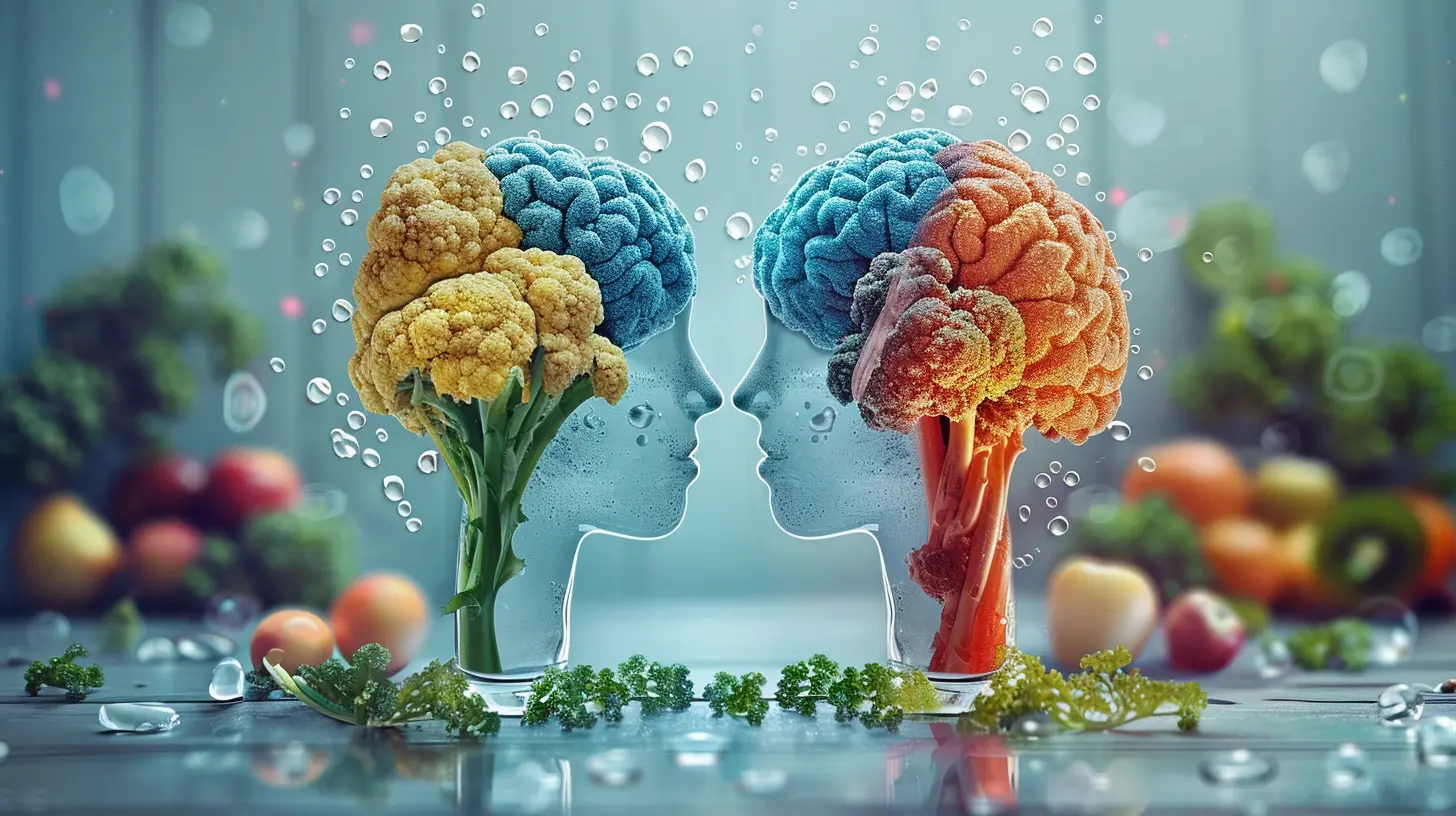The Science of Postpartum Hormone Imbalance and Mood Shifts
16 August 2025
Bringing a baby into the world is incredible — magical even. But let’s be real…it’s also a bit of a hormonal rollercoaster. Whether you're a first-time mom or a seasoned parent, chances are you've felt the emotional highs and lows after childbirth. Maybe you found yourself crying over a diaper commercial or feeling “off” without knowing why.
You’re not alone. These unpredictable feelings are often the result of postpartum hormone imbalance, and the mood shifts that follow are completely real — and backed by science.
In this post, we’re diving deep into the science of postpartum hormones and how they affect your mood. We’ll keep the jargon light and the insights real. Think of this as your no-BS guide to understanding what the heck your body and brain are going through post-baby.
What Happens to Your Hormones After Giving Birth?
Let’s start with the basics. During pregnancy, your body becomes a hormone factory. Estrogen and progesterone levels skyrocket, helping to support your growing baby. These hormones also help maintain the placenta, increase blood volume, and even relax your muscles.But then—whoosh!—right after delivery, those hormone levels take a nosedive.
We’re talking the hormonal equivalent of slamming the brakes at full speed.
Within 24 hours postpartum, estrogen and progesterone levels drop dramatically. We’re not talking gradual here. It’s sudden and sharp, like diving off a cliff with no warning. And your body? It’s left trying to find balance again.
The Key Hormones in Play
Let’s get to know the major hormone players a little better. Here’s who’s messing with your mood:Estrogen
This is the queen bee hormone. It plays a key role in mood regulation and emotional stability. When estrogen drops, it can impact serotonin — the “feel-good” brain chemical that helps keep depression at bay.Progesterone
This one’s known for its calming effects. Think of it as your natural chill pill. So when progesterone drops after childbirth, it’s easier to feel anxious or overwhelmed.Cortisol
The stress hormone. Although cortisol plays a big role during labor, your body keeps producing it postpartum, especially due to sleep deprivation and physical recovery. Too much can lead to irritability, fatigue, or even burnout.Oxytocin
This is often called the “love hormone.” It's released during skin-to-skin contact and breastfeeding. It helps you bond with your baby — and gives you those warm fuzzy feelings. But if it’s lacking or if your environment is stressful, you may feel disconnected or emotionally numb.
The Mood Shifts: What’s Normal and What’s Not?
Mood swings after childbirth? Totally normal. But let’s break it down:1. The Baby Blues
Ah yes, the infamous baby blues. They affect about 70-80% of new moms and usually kick in around 2-3 days postpartum. You might cry unexpectedly, feel extra sensitive, or just...off.The baby blues usually peak around day 4 or 5 and fade within two weeks. They’re annoying, but self-limiting.
2. Postpartum Depression (PPD)
If your low mood sticks around longer than two weeks or interferes with your daily life, it could be more than baby blues. Postpartum depression is a clinical condition and affects about 1 in 7 women.You might feel:
- Persistent sadness or hopelessness
- Loss of interest in things you used to enjoy
- Fatigue or lack of energy
- Trouble bonding with your baby
- Excessive guilt or self-doubt
And nope, it’s not your fault. It’s biological. Hormones are messing with your brain chemistry.
3. Postpartum Anxiety
Mood shifts aren’t just about depression. Many moms experience postpartum anxiety, which can manifest as:- Constant worry or racing thoughts
- Panic attacks
- Obsessive behaviors (like checking on the baby 50 times a night)
- Physical symptoms like heart palpitations or nausea
This is often overlooked, but trust us — it’s just as serious and treatable.
The Science Behind It All
So why does this happen? Science has some answers — and it’s fascinating.When estrogen and progesterone levels drop postpartum, it affects neurotransmitters in the brain. Remember serotonin? That's your mood-regulating bestie. Well, estrogen helps maintain serotonin levels, so when estrogen drops, so does your serotonin.
Think of it like losing your emotional bodyguard. Without serotonin’s calming influence, your brain becomes more vulnerable to stress and sadness.
Meanwhile, your body is also adjusting to sleep deprivation, physical recovery, and the demands of newborn care. Your brain is working overtime with a lot fewer resources. It’s like running a marathon while juggling flaming swords — not exactly easy.
Factors That Can Worsen Hormonal Imbalance & Mood Shifts
Not all postpartum experiences are the same. Here are a few things that can intensify hormone-related mood issues:Sleep Deprivation
We already know that lack of sleep makes everyone cranky. But for new moms, sleep deprivation can throw your body’s stress response into overdrive, increasing cortisol and worsening mood swings.Poor Nutrition
Your body just created a whole human — it needs serious fuel to recover. Deficiencies in key nutrients like iron, B vitamins, and omega-3s can amplify fatigue and worsen emotional stability.History of Mental Health Issues
If you’ve dealt with depression, anxiety, or mood disorders before, your risk of postpartum mood shifts increases. Your nervous system may be more sensitive to hormonal fluctuations.Lack of Support
This one’s a biggie. Feeling isolated or unsupported as a new mom can take a major toll on your mental health. Our brains are wired for connection — and when we lack that support, we suffer emotionally.Can Dads Experience Hormonal Shifts Too?
Surprise! They sure can.Research shows that new fathers also experience hormonal changes — though not as dramatic. Testosterone drops, while oxytocin rises, helping dads bond with their baby. But these shifts can still affect mood, energy levels, and emotional availability.
So yeah, dads can feel a little “off” too. Parenthood is a hormonal game for both sides!
How to Manage Hormonal Imbalances and Mood Shifts Postpartum
Now that we understand what’s going on, let’s talk about solutions. Because yes — there's a light at the end of the tunnel, and no, you don't have to “just live with it.”1. Talk to Someone (Seriously)
Whether it’s a therapist, a trusted friend, or your doctor — open up. Mental health isn’t a solo mission.Postpartum mood disorders are legit medical issues. They aren’t a reflection of your parenting or worth. Speaking up is a strength, not a weakness.
2. Fuel Your Body
Eat foods that nourish your nervous system and hormones. Think:- Fatty fish (like salmon)
- Leafy greens
- Whole grains
- Nuts and seeds
- Eggs
- Fermented foods (hello, gut-brain connection!)
Also: Stay hydrated. Water helps regulate cortisol and energy levels.
3. Move Your Body (Even a Little)
Exercise boosts endorphins and helps regulate stress hormones. You don’t need CrossFit — just a stroll with your stroller, some yoga, or dancing in the kitchen with your baby works wonders.4. Assess Your Sleep
Okay, sleep with a newborn is a joke, right? Still, try to rest whenever you can. Nap when the baby naps isn’t always realistic, but tag-teaming with a partner or asking for help can make a difference.Even short power naps can improve mental clarity and emotional regulation.
5. Consider Supplements
Always talk to your doctor first, but sometimes supplements like omega-3s, magnesium, vitamin D, or postnatal multivitamins can help rebalance hormone levels naturally.6. Create a Support Network
You’re not meant to do motherhood alone. Whether it’s family, friends, a mommy group, or an online community, find your people. Real talk with others going through the same thing can be so healing.When to Seek Professional Help
If you're feeling emotionally stuck, overwhelmed, or unable to function — don’t wait it out. Seek out a healthcare provider who understands postpartum mental health.Here are red flags that warrant immediate attention:
- Thoughts of harming yourself or your baby
- Intense sadness or anxiety lasting more than two weeks
- Inability to sleep or eat
- Feeling disconnected from reality or your baby
You don’t have to suffer in silence. Treatment works — whether it’s therapy, medication, or holistic approaches. You deserve to feel better.
Final Thoughts: You’re Not “Crazy” — You’re Human
Your body just did something miraculous — it created life! Your hormones are adjusting, and your emotions are responding. That doesn’t make you weak… it makes you real.The science of postpartum hormone imbalance and mood shifts is complex, but understanding it gives you power. You can support your body, honor your emotions, and ask for help when you need it.
Motherhood is a wild ride, but you’re not riding it alone. And with the right tools, knowledge, and support — you’ve got this.
all images in this post were generated using AI tools
Category:
Postpartum HealthAuthor:

Madeline Howard
Discussion
rate this article
1 comments
Ace McLean
This article sheds light on an essential topic that many new parents experience but often feel alone in. Understanding postpartum hormone imbalances is crucial for mental health. Thank you for providing valuable insights and support to those navigating this journey!
August 29, 2025 at 4:53 PM

Madeline Howard
Thank you for your thoughtful comment! I'm glad you found the article helpful in addressing such an important issue for new parents.


